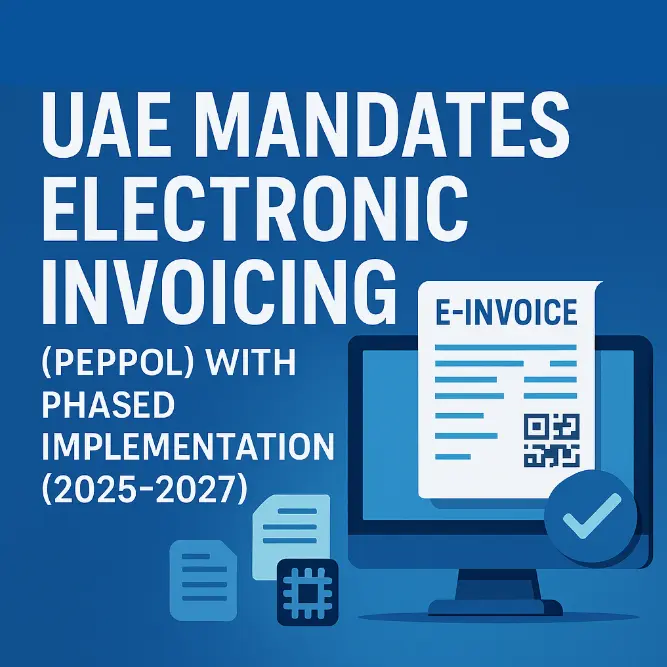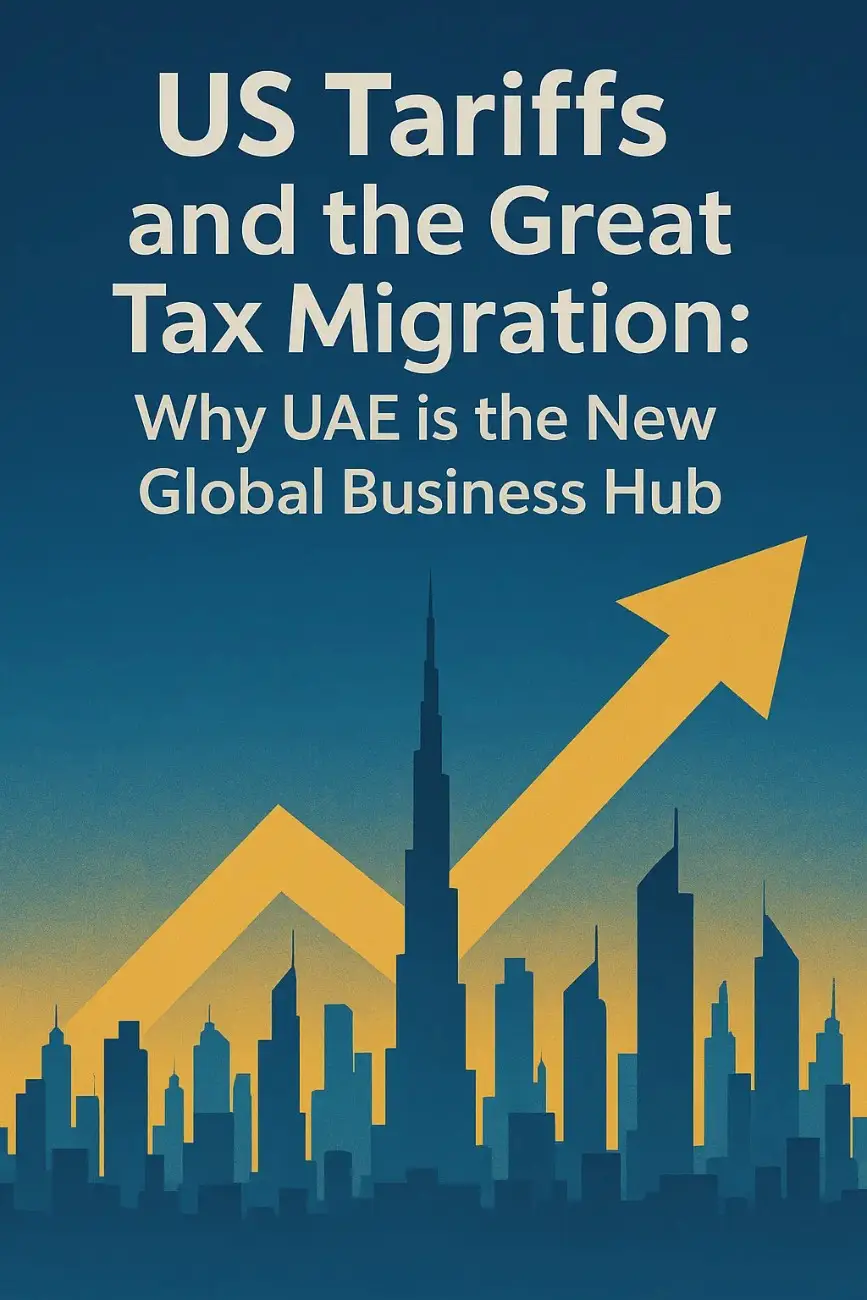Blog
- home
- >
- Blog
Unpacking DIFC vs. ADGM: Your Guide to Licenses, Costs, and Tax Benefits
The United Arab Emirates stands as a beacon for global businesses, drawing entrepreneurs and corporations to its vibrant economy. At the heart of this appeal are the Dubai International Financial Centre (DIFC) and Abu Dhabi Global Market (ADGM), two premier financial free zones that serve as gateways to the Middle East, Africa, and South Asia (MEASA) region. Choosing between DIFC and ADGM is a critical decision for any business aiming to establish a presence in the UAE. Each offers unique advantages, but navigating their tax structures, setup costs, establishment processes, and opportunities for tax exemptions requires careful consideration. This guide explores these elements in a clear, approachable way to help you decide which free zone aligns with your goals.
Understanding the Tax Landscape: A Shift from the Tax-Free Promise
The UAE’s reputation as a tax-free haven has evolved with the introduction of the federal Corporate Tax Law, effective for financial years starting on or after June 1, 2023. While the 0% corporate tax rate remains achievable, it’s no longer automatic. Businesses in DIFC and ADGM must qualify as a “Qualifying Free Zone Person” (QFZP) to access this benefit, meeting stringent criteria that ensure genuine operations within the free zone.
To earn QFZP status, a company must demonstrate real economic activity in the UAE. This means maintaining a physical office, employing qualified staff, and incurring sufficient local expenditures. Core business activities, such as decision-making and board meetings, need to occur in the UAE, with detailed records and signed minutes kept on hand. Annual notifications, and sometimes economic substance returns, must be filed with the Ministry of Finance to confirm compliance. The income a business generates also matters. Qualifying income includes revenue from transactions with other free zone entities, certain dealings with non-free zone parties (provided they align with approved activities), earnings from intellectual property, or income from commercial property within the free zone used for business purposes. For companies focused on holding equity, such as dividends or capital gains, a lighter “reduced substance” standard applies, requiring only a registered office, a UAE bank account, and a resident signatory, without mandating a minimum staff count.
However, the path to 0% tax has a catch: the “de minimis” rule. If a business earns “Non-Qualifying Revenue”, income from excluded activities or non-free zone transactions, exceeding 5% of total revenue or AED 5 million (whichever is lower), it loses QFZP status. This triggers a 9% tax rate on all income for at least five years, making careful income tracking essential. Activities like banking, insurance, finance, leasing, transactions with individuals, or income from non-free zone property and mainland resource extraction (such as oil, gas, or minerals) are always taxed at 9%, as are earnings from domestic or foreign permanent establishments and mainland property rentals.
Beyond corporate tax, other considerations shape the tax landscape. The UAE applies a 5% VAT, requiring businesses with taxable supplies over AED 375,000 annually to register, though voluntary registration is possible at AED 187,500. Exports, international transport, first residential property sales, and select financial services may qualify for 0% rating or exemptions, and goods traded within “Designated Free Zones” can sometimes bypass VAT under Federal Tax Authority guidelines. The absence of personal income tax enhances the UAE’s appeal, allowing employees to keep their full earnings, a significant draw for talent. Customs duties are typically waived in free zones for imports and exports, but a 5% duty applies on the cost, insurance, and freight value elsewhere. Outbound payments, like dividends or interest, face no withholding tax, facilitating international capital flows. Over 90 double tax treaties offer further protection, provided businesses prove UAE substance. Capital gains from selling assets, such as shares or real estate, remain tax-free, adding to the financial allure.
The Cost of Setting Up: What You’ll Pay
Setting up in DIFC or ADGM involves costs that vary depending on your business type and operational needs. In DIFC, known for its financial and innovation focus, non-regulated firms face a one-time registration fee of AED 29,000 to AED 44,000, with annual license fees ranging from AED 14,700 to AED 18,000. The first year’s total, excluding office and visa costs, can range from AED 65,000 to over AED 100,000. For regulated firms under the Dubai Financial Services Authority (DFSA), costs are higher. Application and annual license fees start at AED 55,000 each, with registration fees mirroring non-regulated firms. Capital requirements add to the expense, ranging from AED 255,000 for venture capital firms to AED 735,000 or more for payment service providers, and AED 550,000 for FinTech companies. First-year costs for regulated firms can climb from AED 250,000 to AED 900,000 or beyond. Startups benefit from DIFC’s Innovation License, with an annual fee of AED 5,500 (discounted for two years) and registration costs as low as AED 370 to AED 1,000, leading to a first-year total of AED 30,000 to AED 50,000, including co-working space and up to four visas. Additional expenses include office rent, which spans AED 18,000 to AED 30,000 for co-working spaces or AED 60,000 to over AED 150,000 for private offices annually. Visas, covering establishment cards, medical checks, and Emirates ID, cost AED 1,500 to AED 5,000 per employee. Other fees, such as structure amendments (AED 1,500 to AED 5,000), document attestation (AED 300 to AED 2,000), or compliance outsourcing for regulated firms (AED 100,000 to AED 200,000 yearly), can add up.
ADGM, with fee updates effective January 1, 2025, offers a more cost-competitive option for diverse businesses. Non-financial firms pay USD 5,500 for registration (down from USD 10,000) and USD 5,000 for renewal (down from USD 8,000). Retail businesses face lower fees, with registration at USD 2,500 (previously USD 6,000) and renewal at USD 2,000 (down from USD 4,000). Financial firms see higher costs, with registration at USD 16,700 (up from USD 15,000) and renewal at USD 16,200 (up from USD 13,000). Tech startups benefit from a flat USD 1,500 for both registration and renewal, while Special Purpose Vehicles (SPVs) cost USD 1,900. A new USD 300 data protection fee applies across all categories. These reductions make ADGM particularly attractive for non-financial and retail ventures, broadening its economic ecosystem.
The Setup Process: Ease and Timelines
Both DIFC and ADGM streamline the setup process, but the complexity and duration depend on your business type. Applications are submitted through efficient online portals, requiring a business plan, shareholder and director IDs, financial projections (in English or with certified translations), and documents like Articles of Association or Source of Wealth declarations. Regulated firms face additional scrutiny, needing approval from DIFC’s DFSA or ADGM’s FSRA for key personnel, such as Senior Executive Officers or Compliance Officers, based on their qualifications, experience, and integrity. A physical office is generally required, though exceptions exist: DIFC’s Prescribed Companies can use a shared office, and ADGM’s SPVs or Foundations only need a corporate service provider, lowering costs. Full transparency of Ultimate Beneficial Owners is mandatory, with non-public registers submitted to regulators to comply with anti-money laundering and counter-terrorism financing (AML/CFT) rules.
Timelines vary significantly. In DIFC, non-regulated businesses can complete setup in four to six weeks, provided documentation is complete. Regulated firms, however, may wait three to twelve months due to detailed business plans, risk frameworks, and capital requirements. ADGM offers faster timelines for non-financial setups, often finalizing in days, while financial firms face longer delays due to FSRA approvals. Ongoing compliance is rigorous in both zones. Businesses must submit regular reports to regulators, adhere to AML/CFT rules through due diligence and training, and meet Economic Substance Regulations (introduced April 2019) for activities like banking or intellectual property management. This involves filing annual notifications or returns, with non-compliance risking fines or disclosure to foreign tax authorities. Annual audited accounts and DIFC confirmation statements are also required at license renewal.
Who Qualifies for the 0% Tax Exemption?
To enjoy the 0% corporate tax rate, businesses must qualify as QFZPs by meeting substance requirements and earning specific types of income. Eligible revenue comes from transactions with other free zone entities, certain activities with non-free zone parties, intellectual property earnings, or income from free zone commercial property used for business. Companies focused on shareholding, such as those earning dividends or capital gains, face lighter substance rules, needing only a registered office and UAE-based signatory. Regulated services, like fund management or treasury functions for related parties, also qualify if serving free zone or foreign clients. However, income from banking, insurance, finance, leasing, transactions with individuals, non-free zone property, or mainland resource extraction is excluded and taxed at 9%.
Both DIFC and ADGM offer unparalleled opportunities, with full foreign ownership and unrestricted capital repatriation. ADGM’s 2025 fee reductions make it a cost-effective choice for non-financial and retail businesses, fostering a diverse economic hub. DIFC, with its focus on financial services, excels for institutions leveraging unique structures like Prescribed Companies or its status as a conduit jurisdiction for foreign judgments. Your decision should align with your business’s sector, operational needs, and long-term vision. Ensuring compliance with QFZP criteria and economic substance rules is critical to maximizing tax benefits. Engaging expert advisors familiar with UAE free zones will help you navigate these complexities and set your business up for success.
Partnering with DP Taxation for Seamless DIFC or ADGM Incorporation
Navigating the complexities of setting up in DIFC or ADGM requires expert guidance to ensure compliance and maximize tax benefits. DP Taxation Consultancy, a leading UAE tax firm, specializes in helping businesses establish a presence in these premier free zones. With comprehensive tax advisory and compliance services, DP Taxation ensures your entity meets Qualifying Free Zone Person (QFZP) criteria, securing the 0% corporate tax rate through proper economic substance and income tracking. Our expertise in entity setup streamlines the registration process, from crafting business plans to securing approvals for regulated firms, while our international tax compliance services, including transfer pricing and Double Taxation Avoidance Agreements, optimize global operations. Whether you’re launching a fintech startup in DIFC or a non-financial venture in ADGM, DP Taxation’s tailored solutions, including trust and fund structuring, make incorporation efficient and tax-effective.
Contact us at bd@dptc.ae or call + 971 50 943 4155 to start your journey.
- Dhana Pillai




